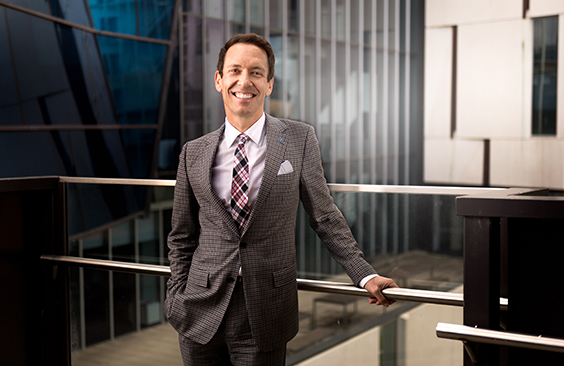Byron Sharp on conference pontification, marketing absolutes and marketer pride
Ahead of his keynote at Mumbrella’s MSIX conference next month, Professor Byron Sharp, director of the world’s biggest marketing research centre The Ehrenberg-Bass Institute, speaks to MSIX curator Adam Ferrier about people at conferences who ask “questions that aren’t questions”, gets angry about people calling his book How Brands Grow ‘absolute’ and says he doesn’t have any regrets.

Sharp: There is no magic key to growth
What motivated you to write the modern marketing bible (maybe a bad analogy for a book on marketing science) ‘How Brands Grow?’
The Advisory Boards of the Ehrenberg-Bass Institute asked for it. They asked me to take a break from writing about our newest work and write a book on the fundamental discoveries and what they meant. The purpose was so that the CMO could have a book they could give to their CEO and CFO to explain that they were making changes in marketing (again!) but this time based on substance not fashion.
So it had to be hardback, and have a respectable publisher. We got Oxford University Press – very respectable, although terrible for marketing a business book, they have no sales force, no presence in bookshops.


Who says academics take themselves too seriously?
What’s your biggest regret?
I don’t have any regrets.
Which advertiser in Australia currently do you think is doing a great job, and not so great job with their communications in Australia?
I haven’t been in Australia lately.
Why even publish the questions if this dude isn’t going to answer?
I like these answers – reflects the struggle between trying get your evidence heard, and not being seen to be dogmatic. A struggle for anyone trying to educate / break ground.
Good interview Adam.
I understand the accusations that Prof. Sharp it too ‘absolute’.
When I first read ‘How Brands Grow’ around seven years ago, I found myself muttering and mumbling to myself and cursing aloud … “bullshit”.
But when I finished the book I realised that what I had read made a lot of sense.
So I immediately sat down and re-read all 200 pages.
What did I learn? I learnt to park all my pre-conceptions. I learnt to think more widely and deeply, then focus back on the detail.
So to anyone who reads the book and finds it very discomforting, curses away as they read, and think it’s bullshit, or some egghead academic, then find some time where you can be prepared to challenger all your own personal shibboleths about how marketing and advertising work and learn how brands grow.
Marketing creates demand. Demand drives the economy. Marketers should be proud (think they are!)
Love EB. Our bus.does too. We will be there. ☃️☃️